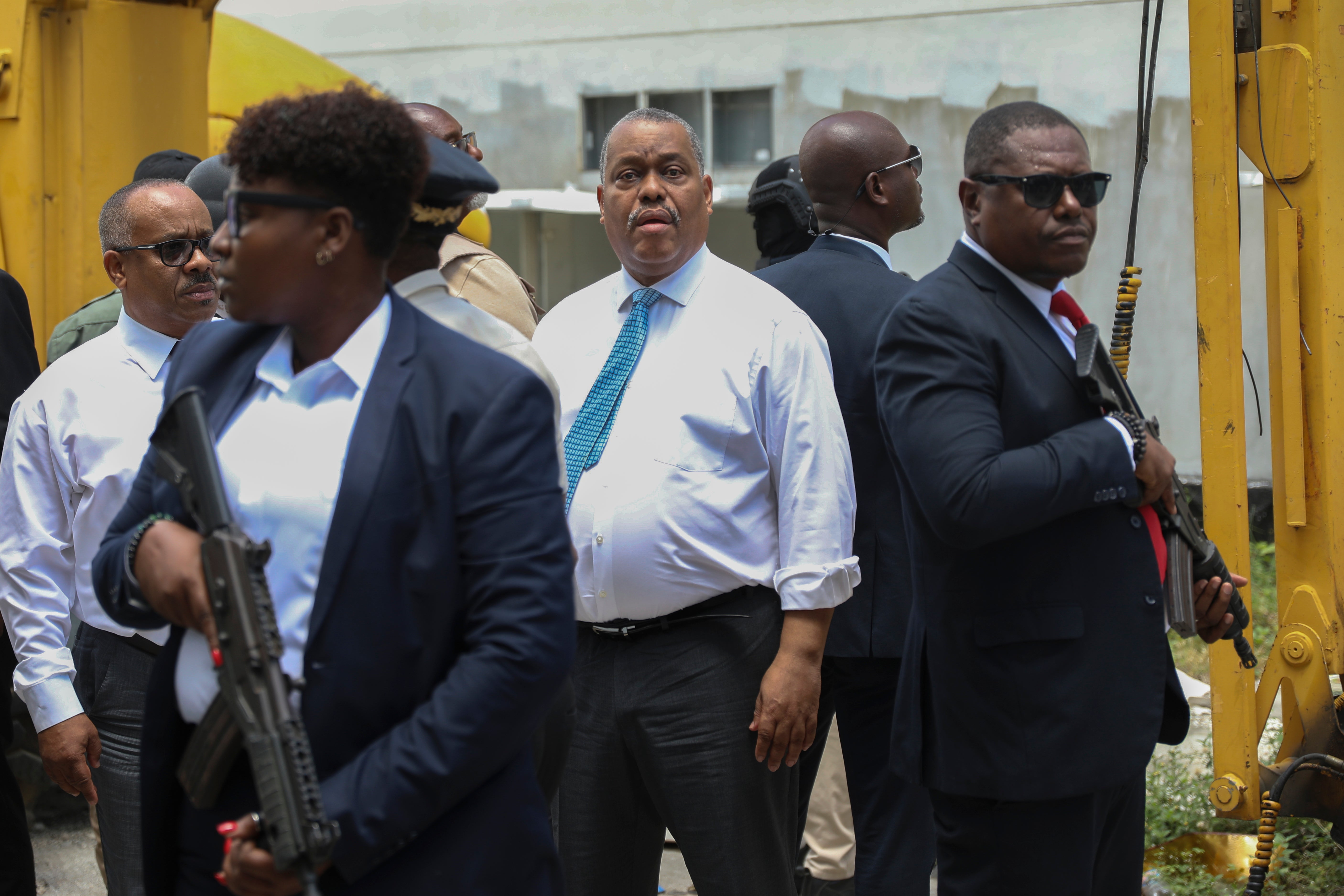Haitian police say they have taken largest hospital back from gang control
Haiti’s newly selected Prime Minister Garry Conille and Haiti’s police chief visited the capital’s largest hospital, after authorities said they took control of the medical institution over the weekend from armed gangs

Your support helps us to tell the story
From reproductive rights to climate change to Big Tech, The Independent is on the ground when the story is developing. Whether it's investigating the financials of Elon Musk's pro-Trump PAC or producing our latest documentary, 'The A Word', which shines a light on the American women fighting for reproductive rights, we know how important it is to parse out the facts from the messaging.
At such a critical moment in US history, we need reporters on the ground. Your donation allows us to keep sending journalists to speak to both sides of the story.
The Independent is trusted by Americans across the entire political spectrum. And unlike many other quality news outlets, we choose not to lock Americans out of our reporting and analysis with paywalls. We believe quality journalism should be available to everyone, paid for by those who can afford it.
Your support makes all the difference.Haiti’s newly selected Prime Minister Garry Conille and Haiti’s police chief visited the capital's largest hospital on Tuesday, after authorities said they took control of the medical institution over the weekend from armed gangs.
Haitian police chief Normil Rameau told a news conference Monday that police took control of the Hospital of the State University of Haiti, known as the General Hospital in Port-au-Prince, on Sunday night after months of escalating attacks from armed groups.
Haitians will “wake up one morning and find the operation done, the bandits stopped, and neutralized,” Normil said at the briefing, but did not take questions from the media. He was accompanied by Kenyan officer Godfrey Otunge, who said that the U.N.-backed contingent of Kenyan police intends to work closely with Haitian authorities as well as local and international partners dedicated to rebuilding Haiti.
The attacks from criminal groups have pushed Haiti’s health system to the brink of collapse and the escalating violence has led to a surge in patients with serious illnesses and a shortage of resources to treat them.
Gangs have been looting, setting fires, and destroying medical institutions and pharmacies in the capital, where they control up to 80% of the area.
Haiti’s health care system, already struggling before the violence, faces additional challenges from the rainy season, which is likely to worsen conditions and increase the risk of water-borne diseases.
Poor hygiene conditions in camps and makeshift settlements have heightened the risk of diseases like cholera, with over 84,000 suspected cases in the country, according to a UNICEF report.
Besides the hospital, gunmen have seized police stations, attacked the main international airport (which was closed for nearly three months), and stormed Haiti’s two largest prisons.
According to a report from the U.N. migration agency, the violence in Haiti has displaced nearly 580,000 people since March.
___
Follow AP’s coverage of Latin America and the Caribbean at https://apnews.com/hub/latin-america